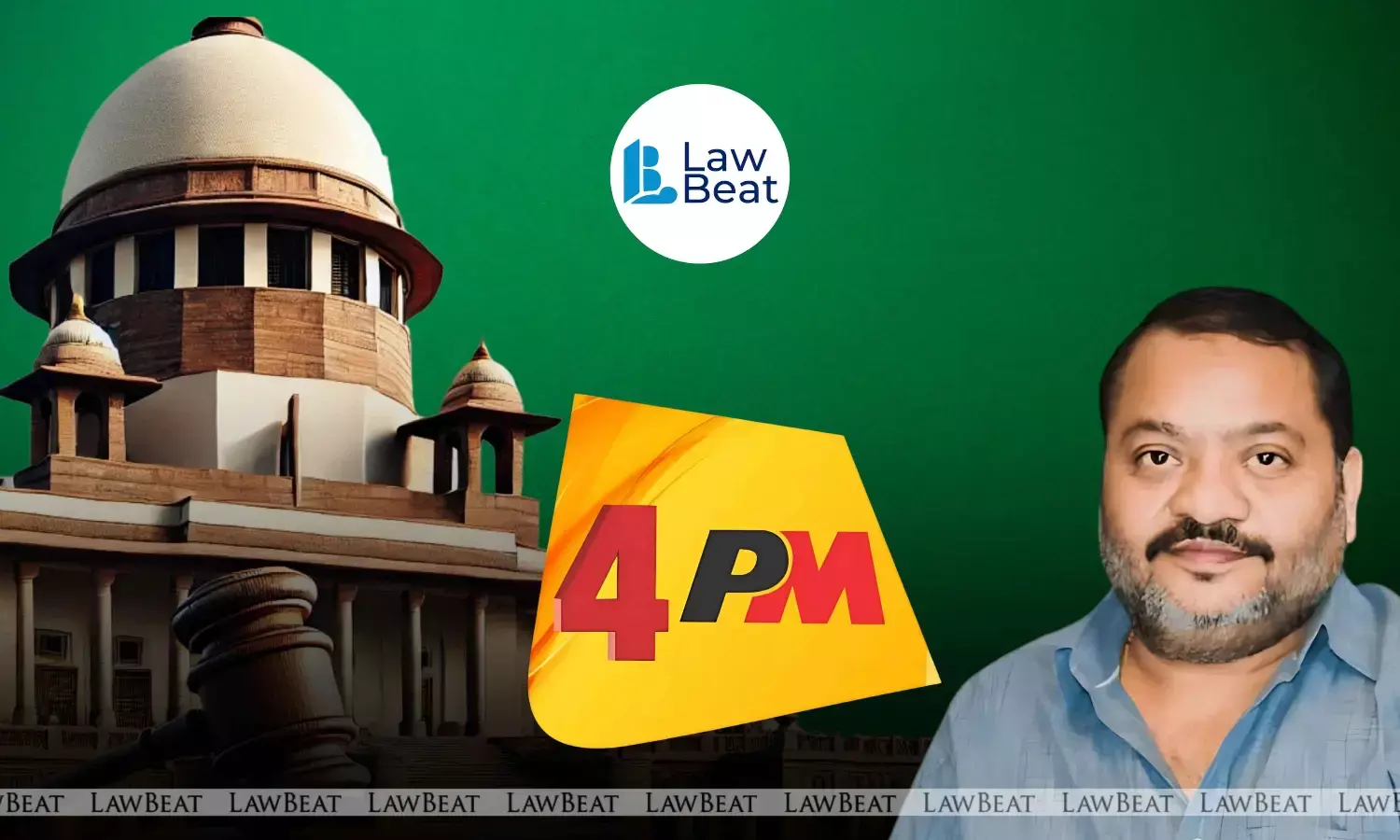"Centre Withdraws Blocking Order Of 4PM News": Supreme Court Tags Plea With Challenge To IT Rules

The Supreme Court on Monday tagged a petition filed by Sanjay Sharma, Editor of 4PM News Network, challenging the blocking of his YouTube news channel by the Government on grounds of “national security” and “public order.”
The matter was heard by the Bench of Justice B.R. Gavai and Justice A.G. Masih.
Senior Advocate Kapil Sibal, appearing for Sharma, informed the Court that the blocking order has since been withdrawn by the authorities.
“For interim relief, the matter has become infructuous,” Sibal stated, while adding, “we are challenging the constitutionality [of the rules]. Please tag it with Writ Petition (Civil) No. 161 of 2025.”
The petition assails the constitutional validity of Rules 8, 9, and 16 of the Information Technology (Procedure and Safeguards for Blocking for Access of Information by Public) Rules, 2009, contending that the rules enable arbitrary executive censorship without adequate procedural safeguards or judicial oversight.
Appearing for the Union Government, Additional Solicitor General K.M. Nataraj did not oppose the tagging of the matter.
Taking note of the submissions, the Court tagged the petition with W.P. (C) No. 161/2025, which raises similar constitutional questions regarding the IT Blocking Rules.
The petition will now be heard along with the broader challenge to the vires of the blocking framework under the IT Act, 2000.
Previously
It is to noted that on May 5, the Supreme Court had issued notice in the plea.
Senior Advocate Kapil Sibal had appeared on behalf of Sharma and urged the Court to consider interim relief due to the complete denial of access to the channel without any formal order or reasons provided to the petitioner. “I want the blocking order to be removed. The channel is blocked and I have no reason—only what the intermediary has informed me,” Sibal had submitted.
Justice Gavai had remarked that the matter would be tagged with the pending plea filed by Senior Advocate Indira Jaising, which also challenges provisions of the Information Technology (Blocking) Rules, 2009. However, Sibal had contended that the two cases were distinguishable since Jaising’s matter does not involve the blocking of a news channel. He pressed for immediate hearing, stating, “Ex-facie it is unconstitutional.”
About the PIL
In his writ petition filed under Article 32 of the Constitution, Sharma contended that the action was carried out arbitrarily and in violation of statutory and constitutional safeguards. He alleged that the blocking was executed by YouTube, acting as an intermediary, pursuant to undisclosed directions from the Union Government, without furnishing any copy of the blocking order or the underlying complaint. The channel, which has over 73 lakh subscribers, has been rendered inaccessible without any notice or opportunity of hearing.
The petition filed through Advocates Syed Mohammad Haider Rizvi, Talha Abdul Rahman, and M Shaz Khan, invoked the Supreme Court’s landmark judgment in Shreya Singhal v. Union of India, wherein Section 69A of the Information Technology Act, 2000 was upheld only on the basis that it incorporated procedural safeguards. Sharma argued that the blocking in his case violates the very safeguards that form the bedrock of the Court’s decision in Shreya Singhal.
Challenging Rules 8, 9, and 16 of the Information Technology (Procedure and Safeguards for Blocking for Access of Information by Public) Rules, 2009, the petitioner asserts that the Rules are ultra vires both the parent statute and the Constitution. He contends that the Rules permit secretive blocking without any hearing, thereby violating Articles 14, 19(1)(a), and 21 of the Constitution. Rule 16, in particular, which provides for confidentiality of blocking orders, is said to subvert procedural fairness and the right to judicial review.
Case Title: Sanjay Sharma v. Union of India & Ors. [W.P.(C) No. 465/2025; Diary No. 23539/2025]
